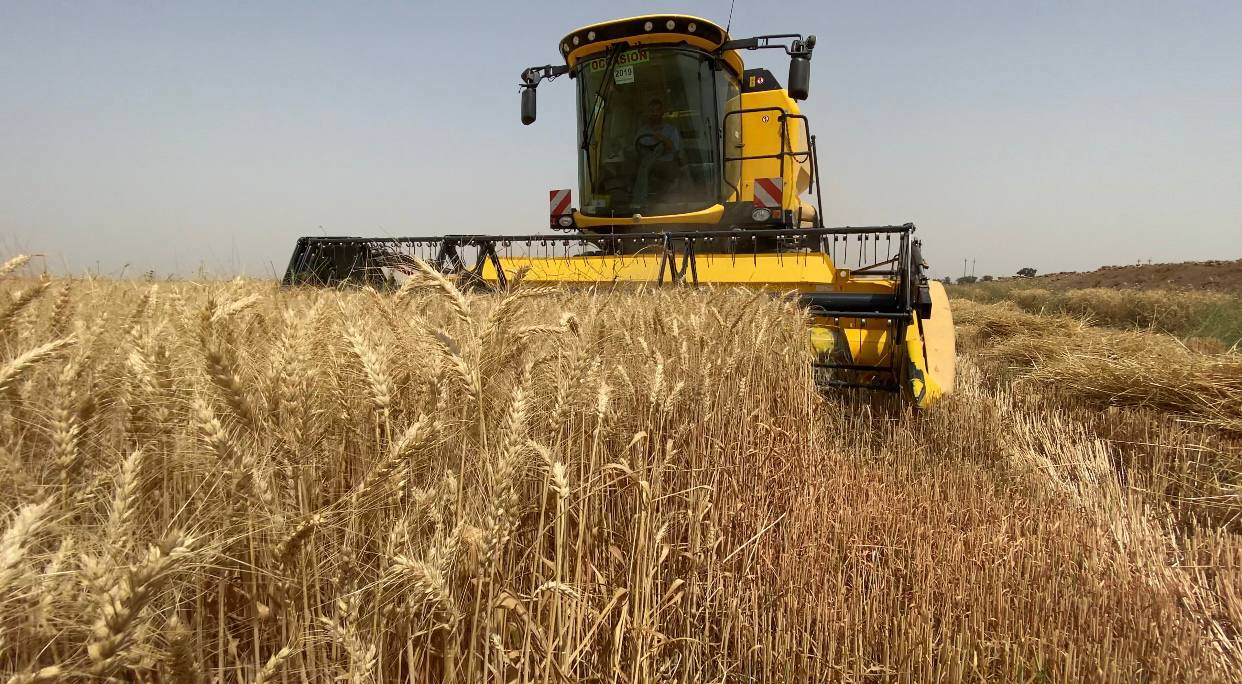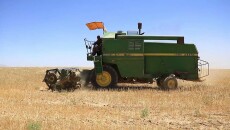The Iraqi Ministry of Commerce has decided to allocate 30 billion Iraqi dinars IQD (USD20 M) for the farmers in Kirkuk.
The decision was issued on Friday, May 10, after a high-level delegation of the Iraqi government visited Kirkuk and opened the doors of silos to receive this year's crops of farmers in the province.
Haider Gar’awi, director general of the (state) General Company for Grain Trading, told the Iraqi News Agency INA that they have opened the door to receive grain from farmers in Kirkuk province, so that farmers' products will be received 24 hours by three committees, two at the city center and one in Hawija district.
He added that this year's harvest of Kirkuk farmers is likely to be good.
Iraqi farmers depend on the state in the production of grains, a policy criticized by experts as for years’ grains were stored in silos in vain and funds not allocated to pay farmers planning to sell their grains to traders and private silos as the demand is higher on wheat following Russia invasion of Ukraine, Europe's food basket.
The government receives wheat from farmers at an amount ranging between 500,000-850,000 Iraqi dinars IQD per ton ($350-600), depending on the quality of the wheat.
The Trade Ministry stores or buys produce from farmers and distributes it to mills in order to provide state-subsidized food rations and subsidized floor into markets as bread and rice make the main dish of the Iraqi cuisine.
The Agriculture Ministry supports farmers by providing harvesting tools, seeds, fertilizers and pesticides at a subsidized rate or for free while farms call for direct involvement of the state following scarcity of water, frequent waves of dust storms and unaffordable cost of fertilizers, pesticides and other necessities.
The Commerce Ministry expects farmers to produce seven million tons of wheat this year, which, according to Gar’awi, "is enough to achieve self-sufficiency.”
The director general of the General Company for Grain Trading said the company still has 1.7 million tons of wheat from last year to meet Iraq's needs for the next four months. He stressed that the government has allocated 30 billion dinars for the entitlements of farmers in Kirkuk. "The dues will be paid immediately with the delivery of the crop.”
The Iraqi Ministry of Commerce expects Kirkuk farmers to produce 650,000 tons of wheat this year.
The multi-ethnic, oil-rich province of Kirkuk, the center of the disputed territories between Baghdad and Erbil, has 1.5 billion square meters of agricultural farmlands, out of which 0.9 billion was allocated for wheat, 2020 statistics of the directorate of Kirkuk agriculture show.
The production of wheat in 2021 was close to 500,000 tons, while in 2020 wheat production exceeded 600,000 tons, Kirkuk's agriculture director said.
The climate change, insufficient state support and poor rainfall has sharply dropped down production of crops. Kirkuk Meteorology said total rain in 2021 was only 104mm compared to 283mm in 2020 and 535mm in 2019, as desertification looms over the unknown destiny of Iraq and other countries in the region.






